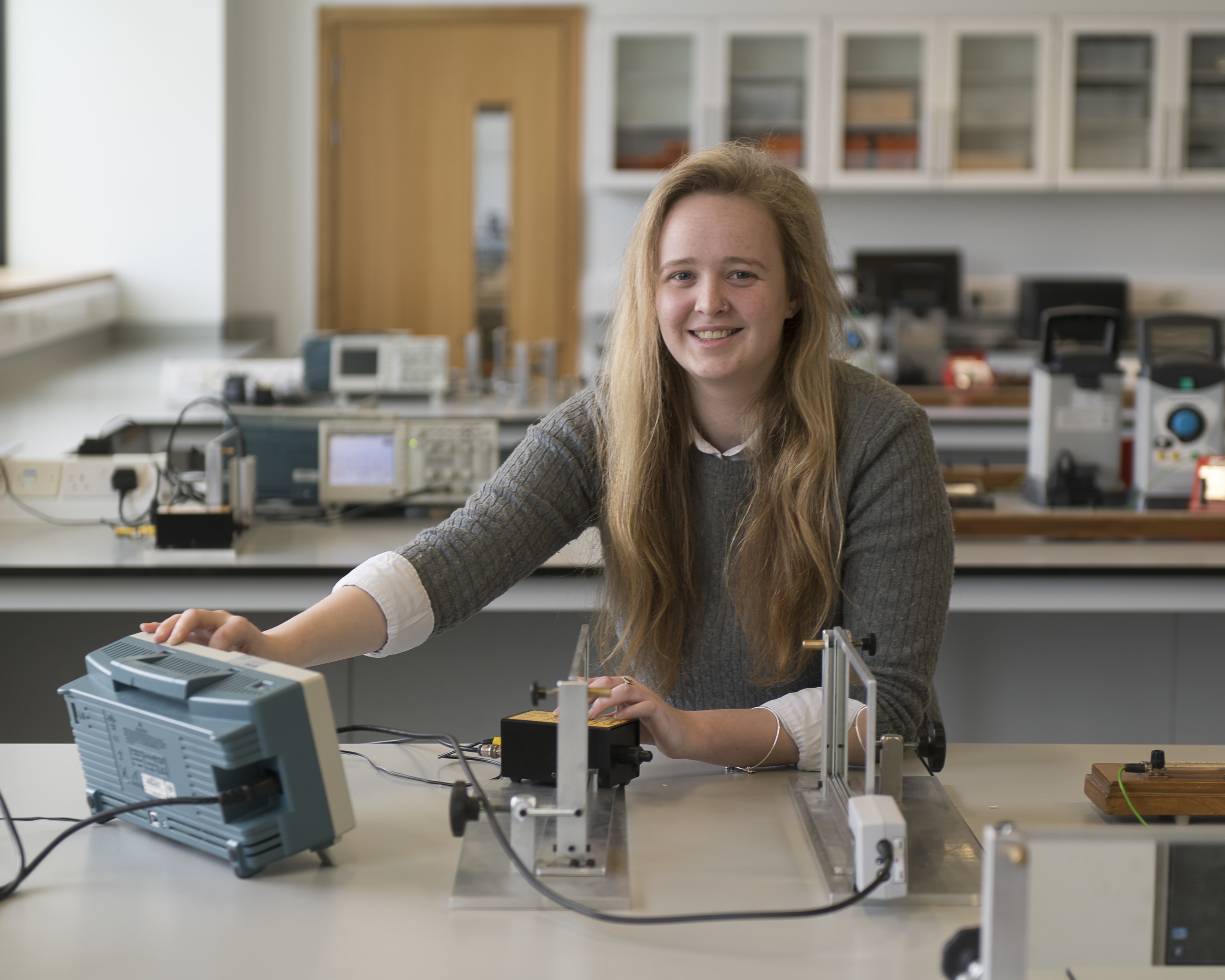Course Information
BSc (Hons) (NFQ Level 8)
Full Time – Undergraduate Studies
CAO Code: DN200
CAO Points Range 2019: 521
Length of Course: 4 Years
Average Intake: 400
- O2/H6 in Mathematics
- O2/H6 in a laboratory science (Applied Mathematics, Computer Science or Geography may be used instead of a laboratory science subject) and
- O6/H7 in English, Irish and two other recognised subjects
- A-Level/GCSE
- Other EU Applicants
- Non-EU Applicants
- QQI FET Entry Routes
- Level 6/7 Progression Routes
Why is this course for me?
Physics is about the fundamental laws of the universe that govern living as well as non-living systems. It is a fundamental science, involving a deep understanding of nature derived from mathematical and experimental insights. Physics is the subject that constantly asks “why?”, questioning why matter and energy exist and act as they do, and discovering the underlying rules that govern their behaviour. Physicists now believe that all phenomena observed in the universe can be explained in terms of a handful of forces: gravity, electricity, magnetism, and weak and strong nuclear interactions.
X-rays, radioactivity and particle beams have led to advances in medicine. The invention of lasers and solid-state transistors by physicists paved the way for computers, DVD players and iPods. Understanding physical principles and discovering new laws that explain our universe at an even deeper level are the challenges that confront physicists in the 21st century.
Career & Graduate Study Opportunities
Recent graduates have pursued careers in the following:
- Energy technology
- Medical physics
- Meteorology
- Advanced materials (e.g. semiconductor industry)
- Geoscience
- ICT and financial industries
- Semi-state bodies such as EPA’s Office of Radiological Protection
Graduates are also eligible to apply for MSc programmes in Nanobio Science, Space Science & Technology, Nanotechnology, Medical Physics or Meteorology, or for PhD programmes in Ireland and abroad in diverse areas such as Radiation Physics, Physics of Advanced Materials, Atomic Physics, Particle Physics and Astrophysics.
What Will I Study
This is a sample pathway for a degree in Physics. Topics include fields, waves and light, quantum mechanics, astrophysics, thermal physics, optics and lasers, atomic and nuclear physics, particle physics, condensed matter physics and medical physics.
First Year
- Physics
- Mathematics
- Optional Science modules
- Elective module
Second Year
- Physics
- + 1 Other Science Subject
- Elective modules
Third Year
- Physics
- Elective modules
Fourth Year
- Physics (includes a research project)
All Science courses are full time, with many student timetables running from 9.00am to 5.00pm or later. Depending on the subject choices, a weekly timetable can include lectures, practicals and tutorials.
Assessment varies with each module but may comprise continuous assessment of practicals, written exams and online learning activities.
International Study Opportunities
Students can apply to study for a semester or year in third year in a number of universities worldwide including:
- University of California, Berkeley, USA
- University of California, Santa Cruz, USA
- San Jose State University, California, USA
- University of Melbourne, Australia
Testimonial
“I fell in love with Physics after discovering how much I appreciated being able to see what we learned in the classroom work first-hand in the lab. After Second Year I completed my first research internship with the UCD School of Physics. I worked closely with staff to write programs to solve equations describing white dwarf and neutron stars. I found this placement beneficial as it gave me my first taste of real scientific research. I will be travelling to University of Notre Dame this summer to undertake another internship studying radioactive materials’ impact on the environment.”
Eimear Conroy Student

